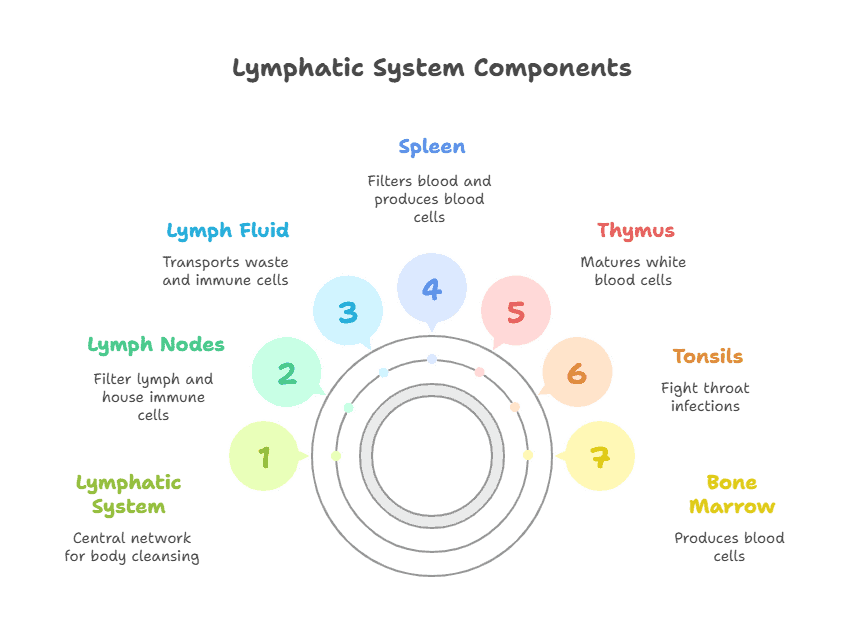The lymphatic system is a network of tissues and organs that help rid the body of toxins, waste, and other unwanted materials. It plays a crucial role in maintaining the body’s fluid balance, fighting infections, and transporting fats in the bloodstream. Understanding the functions of the lymphatic system is essential for overall health and well-being.
1. Drainage of Fluids
One of the primary functions of the lymphatic system is to drain excess fluids from tissues and return them to the bloodstream. This helps maintain the body’s fluid balance and prevents swelling or edema. The lymphatic vessels act as a drainage system, collecting fluid that has leaked from blood vessels and returning it to circulation.
2. Immune Response
The lymphatic system plays a crucial role in the body’s immune response. Lymph nodes, which are small bean-shaped structures located throughout the body, contain white blood cells that help fight infections. When pathogens enter the body, the lymphatic system responds by producing antibodies and activating immune cells to defend against foreign invaders.
3. Absorption of Fats
In addition to draining fluids and fighting infections, the lymphatic system is also responsible for absorbing fats and fat-soluble vitamins from the digestive system. Specialized lymphatic vessels called lacteals in the small intestine absorb dietary fats and transport them to the bloodstream for use by the body. This process is essential for proper digestion and nutrient absorption.
Summary:
The lymphatic system serves several vital functions in the body, including drainage of fluids, immune response, and absorption of fats. By maintaining the body’s fluid balance, fighting infections, and transporting fats, the lymphatic system plays a crucial role in overall health and well-being.
Key Takeaways:
- The lymphatic system plays a crucial role in maintaining fluid balance in the body by draining excess fluid from tissues and returning it to the bloodstream.
- One of the main functions of the lymphatic system is to transport lymph, a clear fluid containing white blood cells, throughout the body.
- The lymphatic system also plays a key role in immune function by filtering out harmful substances, such as bacteria and viruses, from the lymph fluid.
- Lymph nodes are small, bean-shaped structures that act as filters for the lymph fluid, trapping and destroying harmful substances before they can reach the bloodstream.
- The lymphatic system works closely with the circulatory system to help maintain overall health and well-being.
Key Terms:
- Lymphatic System: A network of tissues and organs that help rid the body of toxins, waste, and other unwanted materials.
- Lymph Nodes: Small, bean-shaped structures that filter lymph fluid and help fight infection and disease.
- Lymph Fluid: A clear fluid that contains white blood cells and bathes the body’s tissues.
- Lymphocytes: White blood cells that help the body fight off infections and diseases.
- Immune Response: The body’s defense mechanism against harmful pathogens and foreign substances.
- Edema: Swelling caused by excess fluid trapped in body tissues.
- Transportation: The lymphatic system helps transport lymph fluid, nutrients, and waste products throughout the body.
- Detoxification: The lymphatic system helps remove toxins and waste from the body.
- Immune Surveillance: The lymphatic system helps identify and destroy harmful pathogens in the body.
- Homeostasis: The lymphatic system helps maintain a balanced internal environment in the body.
